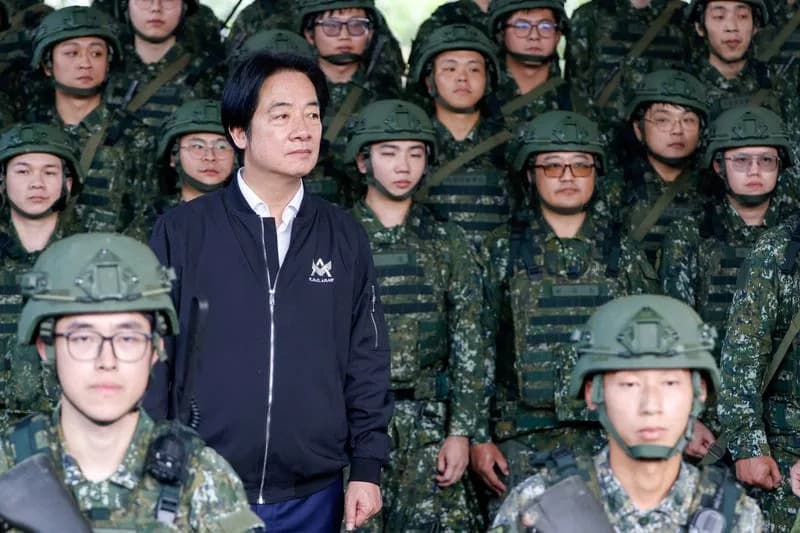Canada and the Philippines signed a Status of Visiting Forces Agreement to expand joint military exercises, intelligence-sharing and emergency cooperation aimed at deterring aggressive actions in the South China Sea. The pact, signed by Defense Secretary Gilberto Teodoro Jr. and Canada’s David McGuinty, offers a legal framework for foreign troop visits and large-scale drills. Canada has also shared satellite-based "Dark Vessel Detection" data to help the Philippines track vessels that disable transponders. The move forms part of broader Western efforts to uphold a rules-based order in the Indo-Pacific.
Canada and Philippines Sign Visiting Forces Pact to Boost Drills and Deter China's Moves in South China Sea

Canada and the Philippines deepen defense ties with Visiting Forces Agreement
Canada and the Philippines, both vocal critics of China’s coercive behavior in the contested South China Sea, signed a Status of Visiting Forces Agreement (SVFA) on Sunday to broaden joint combat exercises, intelligence-sharing and emergency cooperation, officials said.
The pact was signed in Manila by Philippine Defense Secretary Gilberto Teodoro Jr. and Canada’s defense minister, David McGuinty, after a closed-door meeting. McGuinty said the agreement will strengthen joint military training, improve information-sharing, and expand cooperation on humanitarian assistance and disaster response.
The SVFA provides a legal framework for visits by foreign troops and for conducting large-scale joint exercises in either country. Philippine officials said the deal is part of Manila’s effort to build defense partnerships so its chronically underfunded armed forces can better contend with China’s larger military capabilities in the disputed waters.
Teodoro told reporters the arrangement is central to upholding a rules-based international order in a region he described as threatened by "China's expansionist behavior." "Who is hegemonic? Who wants to expand their territory in the world? China," he said.
Canada and other Western nations have been increasing their military presence in the Indo-Pacific to promote the rule of law and to support trade and investment. Ottawa has also publicly criticized China’s announced plan to designate Scarborough Shoal as a "nature reserve," saying the move risks using environmental protection as a pretext for asserting control over contested waters.
Beijing claims almost the entire South China Sea — a crucial global shipping route — despite a 2016 arbitration ruling under the 1982 U.N. Convention on the Law of the Sea that invalidated China’s broad maritime claims. China has rejected that ruling and has employed water cannons and aggressive blocking maneuvers against Philippine coast guard and other vessels, causing collisions and injuries. Vietnam, Malaysia, Brunei and Taiwan are also parties to the long-running territorial disputes.
Canada has been active in regional security cooperation with the Philippines. In 2023 Ottawa provided Manila access to data from its Dark Vessel Detection System, a satellite-based capability that helps track vessels that turn off their automatic identification system (AIS) transponders. The Philippine Coast Guard has used that technology to monitor Chinese coast guard ships and fishing vessels in the South China Sea.
The SVFA is the latest of several defense arrangements Manila has pursued: the Philippines signed a visiting forces agreement with the United States in 1998 and a similar pact with Australia in 2007. Under President Ferdinand Marcos Jr., Manila has also concluded agreements with Japan and New Zealand and is negotiating or discussing similar pacts with France, Singapore, Britain and potentially Germany and India.
Analysts say the Canadian agreement underscores growing Western engagement in the Indo-Pacific and signals continued international support for maintaining freedom of navigation, maritime security and a rules-based order in the region.
Help us improve.


































